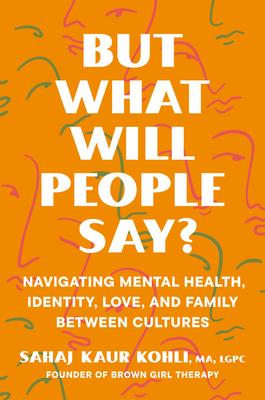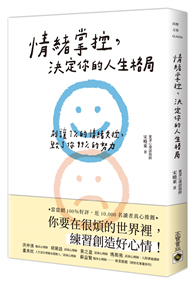"This wonderful book is a compass, a blueprint, a mirror, and a friend. Kohli gives language to what many of us feel but can’t yet articulate."--Erika L. Sánchez, New York Times bestselling author of I am Not Your Perfect Mexican Daughter
| FindBook |
有 1 項符合
But What Will People Say?: Exploring Mental Health, Identity, Love, and Family Between Two Cultures的圖書 |
 |
But What Will People Say?: Exploring Mental Health, Identity, Love, and Family Between Two Cultures 作者:Kohli 出版社:Penguin Life 出版日期:2024-05-07 語言:英文 規格:精裝 / 272頁 / 22.86 x 15.24 x 1.75 cm / 普通級/ 初版 |
| 圖書館借閱 |
| 國家圖書館 | 全國圖書書目資訊網 | 國立公共資訊圖書館 | 電子書服務平台 | MetaCat 跨館整合查詢 |
| 臺北市立圖書館 | 新北市立圖書館 | 基隆市公共圖書館 | 桃園市立圖書館 | 新竹縣公共圖書館 |
| 苗栗縣立圖書館 | 臺中市立圖書館 | 彰化縣公共圖書館 | 南投縣文化局 | 雲林縣公共圖書館 |
| 嘉義縣圖書館 | 臺南市立圖書館 | 高雄市立圖書館 | 屏東縣公共圖書館 | 宜蘭縣公共圖書館 |
| 花蓮縣文化局 | 臺東縣文化處 |
|
|
圖書介紹 - 資料來源:博客來 評分:
圖書名稱:But What Will People Say?: Exploring Mental Health, Identity, Love, and Family Between Two Cultures
內容簡介
作者簡介
Sahaj Kohli is the founder of Brown Girl Therapy (@browngirltherapy), the first and largest mental health and wellness community organization for children of immigrants, a licensed therapist, and a columnist for the Washington Post’s advice column Ask Sahaj. Sahaj’s words and work have been featured in Today, Good Morning America, HuffPost, Katie Couric’s newsletter, Mental Health America, and others. Sahaj has sat on panels and delivered workshops and keynotes at Amazon Inc., Google, Accenture, EA, among others.
|










